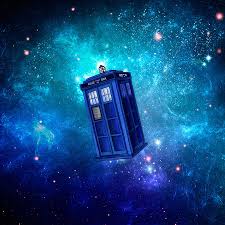
8.8 A Components of the Universe
Quiz
•
Science
•
8th Grade
•
Practice Problem
•
Medium
+2
Standards-aligned

Alonzo Martinez III
Used 302+ times
FREE Resource
Enhance your content in a minute
25 questions
Show all answers
1.
MULTIPLE CHOICE QUESTION
1 min • 1 pt
Which celestial body is know for its intense pull of gravity?
Tags
NGSS.MS-ESS1-2
NGSS.MS-PS2-4
2.
MULTIPLE CHOICE QUESTION
1 min • 1 pt
The Milky Way galaxy is described as a disk of stars orbiting a central point on the disk. Which of these best explains why people on Earth cannot see the entire shape of the Milky Way?
3.
MULTIPLE CHOICE QUESTION
1 min • 1 pt
The universe has may different components. Which list places four components of the universe in the most likely order from smallest to largest.
Tags
NGSS.MS-ESS1-3
4.
MULTIPLE CHOICE QUESTION
1 min • 1 pt
The Milky Way galaxy is described as a disk of stars orbiting a central point on the disk. Which of these best explains why people on Earth cannot see the entire shape of the Milky Way?
5.
MULTIPLE CHOICE QUESTION
1 min • 1 pt

What type of galaxy is this?
6.
MULTIPLE CHOICE QUESTION
1 min • 1 pt
A system of stars, gas, dust, and dark matter bound together by gravity is called ---
Tags
NGSS.MS-ESS1-2
7.
MULTIPLE CHOICE QUESTION
1 min • 1 pt
Stars are made up mostly of which two elements?
Tags
NGSS.HS-ESS1-3
Access all questions and much more by creating a free account
Create resources
Host any resource
Get auto-graded reports

Continue with Google

Continue with Email

Continue with Classlink

Continue with Clever
or continue with

Microsoft
%20(1).png)
Apple
Others
Already have an account?
Similar Resources on Wayground

20 questions
Cell-Structure and Functions
Quiz
•
8th Grade

20 questions
G2 Sc Force Hw 1
Quiz
•
2nd Grade - University

20 questions
Határtalanul - felvidék
Quiz
•
7th - 8th Grade

20 questions
Examen Digital II Lapso
Quiz
•
8th Grade - University

20 questions
Electricity Recap
Quiz
•
6th - 8th Grade

20 questions
Light, Heat and Sound
Quiz
•
8th - 10th Grade

20 questions
PH 1 Sistem Gerak Semester Ganjil
Quiz
•
8th Grade

20 questions
Skeletal System
Quiz
•
6th - 8th Grade
Popular Resources on Wayground

15 questions
Fractions on a Number Line
Quiz
•
3rd Grade

20 questions
Equivalent Fractions
Quiz
•
3rd Grade

25 questions
Multiplication Facts
Quiz
•
5th Grade

22 questions
fractions
Quiz
•
3rd Grade

20 questions
Main Idea and Details
Quiz
•
5th Grade

20 questions
Context Clues
Quiz
•
6th Grade

15 questions
Equivalent Fractions
Quiz
•
4th Grade

20 questions
Figurative Language Review
Quiz
•
6th Grade
Discover more resources for Science

33 questions
Grade 6 Quarter 3 PMA 5 Review
Quiz
•
6th - 8th Grade

85 questions
Midpoint D1 Review
Quiz
•
8th Grade

12 questions
Newton's Laws of Motion
Lesson
•
6th - 8th Grade

10 questions
Exploring the Rock Cycle: Types and Formation
Interactive video
•
6th - 8th Grade

10 questions
Exploring the Layers of the Earth
Interactive video
•
6th - 10th Grade

20 questions
Pure Substances & Mixtures
Quiz
•
8th Grade

28 questions
Genes and Heredity
Lesson
•
8th Grade

24 questions
Subatomic Particles
Quiz
•
8th Grade
